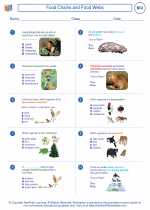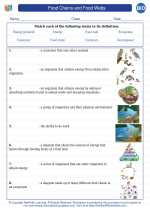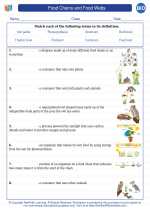Food Chains and Food Webs -> iron
Iron in Biology
Iron is an essential element for many biological processes in living organisms. It is a key component of hemoglobin, the protein in red blood cells that carries oxygen from the lungs to the rest of the body. Iron is also involved in energy production, DNA synthesis, and immune function.
Functions of Iron in Biology
- Hemoglobin Production: Iron is necessary for the synthesis of hemoglobin, which is essential for oxygen transport in the blood.
- Energy Production: Iron is a component of proteins involved in the electron transport chain, which is essential for generating energy in the form of ATP.
- DNA Synthesis: Iron is required for the production of DNA and its incorporation into new cells.
- Immune Function: Iron is involved in the function of immune cells and the body's defense against pathogens.
Sources of Iron
Iron is obtained through dietary sources such as red meat, poultry, fish, lentils, beans, and fortified cereals. The body carefully regulates iron absorption, increasing it when stores are low and decreasing it when there is sufficient iron present.
Iron Deficiency and Toxicity
Iron deficiency can lead to anemia, fatigue, and impaired cognitive function. On the other hand, excessive iron accumulation can lead to toxicity, causing organ damage and increasing the risk of chronic diseases.
Study Guide
To study iron in biology, it is important to understand its role in hemoglobin production, energy metabolism, and immune function. Familiarize yourself with the sources of dietary iron and the body's mechanisms for regulating iron absorption. Additionally, make sure to understand the consequences of both iron deficiency and iron toxicity, and how these conditions can impact human health.
.◂Biology Worksheets and Study Guides High School. Food Chains and Food Webs

 Worksheet/Answer key
Worksheet/Answer key
 Worksheet/Answer key
Worksheet/Answer key
 Vocabulary/Answer key
Vocabulary/Answer key
 Vocabulary/Answer key
Vocabulary/Answer key
